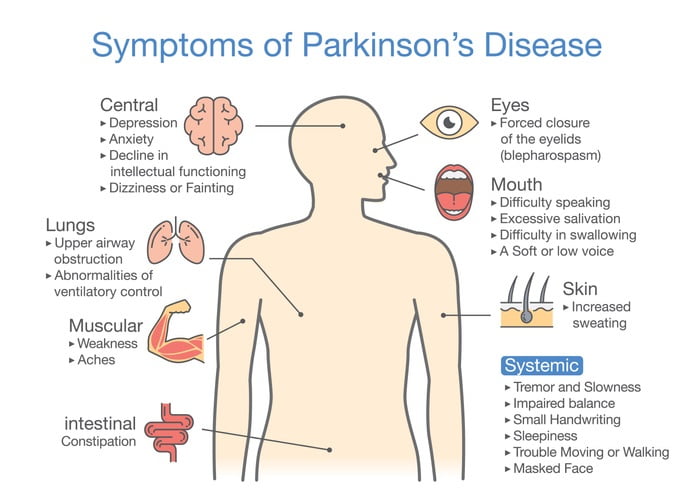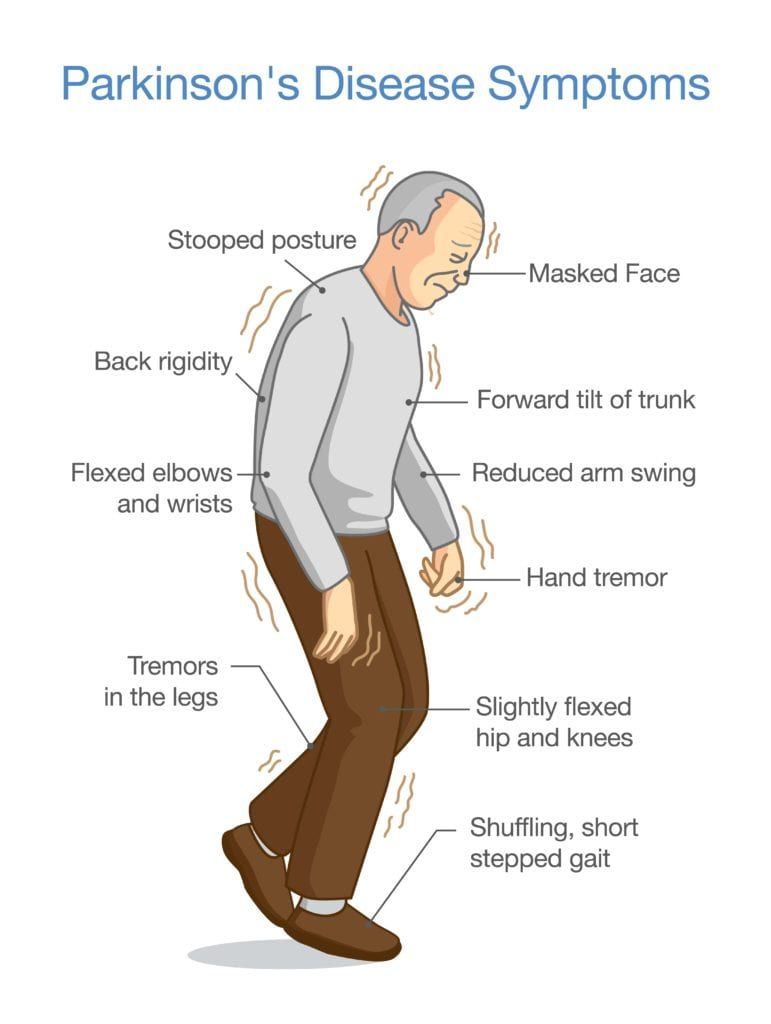Does Paul Gosar Have Parkinson's Disease Medical refers to an inquiry about the potential diagnosis of Parkinson's disease in United States Representative and Republican Paul Gosar. Parkinson's disease is a progressive neurological disorder that affects movement, often causing tremors, stiffness, and impaired balance. The condition is named after James Parkinson, a British physician who first described it in 1817.
Doctors commonly diagnose Parkinson's disease based on the patient's symptoms and medical history. There is currently no cure for Parkinson's disease, but medications can help manage the symptoms. Early diagnosis and treatment can improve a person's quality of life.
This article provides an overview of Parkinson's disease, including its symptoms, diagnosis, and treatment options. It also discusses the potential diagnosis of Parkinson's disease in Paul Gosar and the implications for his health and career.
Does Paul Gosar Have Parkinson's Disease Medical
Understanding the key aspects related to the potential diagnosis of Parkinson's disease in Paul Gosar is crucial for assessing his health status and its possible implications. These aspects provide a comprehensive overview of the condition, its diagnosis, and management.
- Symptoms: Tremors, stiffness, impaired balance
- Diagnosis: Based on symptoms and medical history
- Treatment: Medications to manage symptoms
- Progression: Gradual worsening of symptoms over time
- Quality of life: Can be affected by the severity of symptoms
- Life expectancy: Not significantly reduced with proper treatment
- Public figure: Paul Gosar is a member of the US House of Representatives
- Political implications: A diagnosis of Parkinson's disease could impact his ability to serve in office
These aspects highlight the medical and personal considerations surrounding Paul Gosar's potential diagnosis. Understanding these aspects can help us make informed decisions about his health and well-being.
| Name | Paul Gosar |
|---|---|
| Born | November 27, 1958 |
| Place of Birth | Rock Springs, Wyoming |
| Occupation | U.S. Representative for Arizona's 4th congressional district |
| Political Party | Republican |
Symptoms
Understanding the symptoms of Parkinson's disease, namely tremors, stiffness, and impaired balance, is critical in assessing whether Paul Gosar has the condition. These symptoms can manifest in various ways, affecting an individual's daily life and overall well-being.
- Tremors: Involuntary shaking or trembling, often starting in the hands or fingers.
- Stiffness: Rigidity or inflexibility in the muscles, making it difficult to move or walk naturally.
- Impaired balance: Difficulty maintaining balance and coordination, increasing the risk of falls.
These symptoms can vary in severity and may progress over time. In the context of Paul Gosar's potential diagnosis, the presence and severity of these symptoms will be key factors in determining whether he has Parkinson's disease. Further medical evaluation and observation will be necessary to make an accurate diagnosis and assess the implications for his health and ability to serve in office.
Diagnosis
The diagnosis of Parkinson's disease relies heavily on the patient's symptoms and medical history. This approach involves gathering information about the individual's current and past health conditions, as well as conducting a physical examination to assess their symptoms.
- Patient history: The doctor will ask about the patient's symptoms, when they started, and how they have progressed over time. They will also inquire about the patient's family history of Parkinson's disease and other neurological conditions.
- Physical examination: The doctor will conduct a physical examination to assess the patient's motor skills, balance, and coordination. They will also look for signs of rigidity, tremors, and other symptoms of Parkinson's disease.
- Neurological tests: The doctor may order neurological tests, such as an MRI or CT scan, to rule out other conditions that could be causing the patient's symptoms.
- Dopamine transporter imaging: This test can help visualize the dopamine transporter in the brain, which is affected in Parkinson's disease.
The diagnosis of Parkinson's disease is complex and requires a thorough evaluation of the patient's symptoms and medical history. There is no single test that can definitively diagnose Parkinson's disease, but a combination of tests and examinations can help the doctor make an accurate diagnosis.
Treatment
Medications play a crucial role in managing the symptoms of Parkinson's disease, offering relief and improving the quality of life for patients. Understanding the types, mechanisms, and implications of these medications is vital in assessing their potential benefits and limitations in the context of Paul Gosar's condition.
- Levodopa: A dopamine precursor that helps increase dopamine levels in the brain, reducing tremors and stiffness.
- Dopamine agonists: Mimic the effects of dopamine in the brain, providing symptomatic relief similar to levodopa.
- MAO B inhibitors: Slow down the breakdown of dopamine in the brain, prolonging its effects and reducing symptom fluctuations.
- Anticholinergics: Help control tremors and rigidity by blocking the action of acetylcholine, another neurotransmitter involved in movement.
The selection and dosage of these medications are individualized based on the patient's symptoms and response to treatment. Regular monitoring and adjustments are necessary to optimize symptom control and minimize side effects. In the case of Paul Gosar, the effectiveness and tolerability of these medications will be key considerations in managing his symptoms and maintaining his overall health and well-being.
Progression
The gradual worsening of symptoms over time is a defining characteristic of Parkinson's disease. This progression is caused by the ongoing loss of dopamine-producing neurons in the brain. As the levels of dopamine decrease, the symptoms of Parkinson's disease become more pronounced. This progression can be slow and gradual, or it can be more rapid in some cases.
In the case of Paul Gosar, if he is diagnosed with Parkinson's disease, the progression of his symptoms will be a key factor in determining his prognosis and treatment options. If his symptoms are progressing slowly, he may be able to manage his condition with medication and lifestyle changes. However, if his symptoms are progressing more rapidly, he may need to consider more aggressive treatment options, such as deep brain stimulation or surgery.
The progression of Parkinson's disease can be unpredictable, and it is important for patients to be aware of the potential risks and complications. However, with proper treatment and support, most people with Parkinson's disease can live full and active lives.
Quality of life
The severity of symptoms in Parkinson's disease can significantly impact a person's quality of life. Motor symptoms, such as tremors, rigidity, and impaired balance, can make it difficult to perform everyday tasks and participate in activities that bring joy and fulfillment. Non-motor symptoms, such as fatigue, depression, and cognitive impairment, can further diminish a person's well-being.
In the case of Paul Gosar, if he is diagnosed with Parkinson's disease, the severity of his symptoms will be a major factor in determining his quality of life. If his symptoms are mild, he may be able to manage his condition with medication and lifestyle changes and continue to live a full and active life. However, if his symptoms are more severe, he may experience significant challenges in his daily life and may need to rely on assistance from family, friends, or caregivers.
Understanding the relationship between the severity of symptoms and quality of life is critical for developing effective treatment plans for people with Parkinson's disease. By addressing both motor and non-motor symptoms, healthcare professionals can help patients improve their quality of life and live as independently as possible.
Life expectancy
Contrary to common misconceptions, Parkinson's disease does not significantly reduce life expectancy with proper treatment. This is primarily due to the availability of effective medications that can manage the symptoms of the disease and improve quality of life. These medications include levodopa, dopamine agonists, MAO B inhibitors, and anticholinergics.
In the case of Paul Gosar, if he is diagnosed with Parkinson's disease, the availability of these treatments will be a major factor in determining his life expectancy. If he receives proper treatment and manages his symptoms effectively, he can expect to live a normal lifespan. However, it is important to note that Parkinson's disease is a progressive condition, and the effectiveness of medications may decrease over time. As a result, it is important for people with Parkinson's disease to work closely with their healthcare team to monitor their symptoms and adjust their treatment plans as needed.
The understanding that life expectancy is not significantly reduced with proper treatment is critical for people with Parkinson's disease. This knowledge can provide hope and motivation to manage their symptoms and live full and active lives.
Public figure
The aspect of "Public figure: Paul Gosar is a member of the US House of Representatives" holds relevance to the broader topic of "Does Paul Gosar Have Parkinson's Disease Medical" due to its potential implications for his health, career, and public perception. Here are several key facets to consider:
- Political Career: As a member of the US House of Representatives, Paul Gosar holds a prominent position in American politics. His health and well-being could impact his ability to fulfill his duties and responsibilities effectively.
- Public Scrutiny: As a public figure, Paul Gosar's health condition is subject to public scrutiny and media attention. This could affect his privacy and potentially influence public opinion about his fitness to serve.
- Constituent Concerns: Paul Gosar's constituents may have concerns about his health and its potential impact on his representation and advocacy on their behalf.
- Political Polarization: Paul Gosar is a member of the Republican Party, and his health condition could become a topic of political debate or speculation, potentially exacerbating existing partisan divisions.
These facets highlight the complex interplay between Paul Gosar's public role and his personal health. Understanding these factors is crucial for assessing the potential consequences of a Parkinson's disease diagnosis and navigating the challenges he may face both personally and professionally.
Political implications
Examining the potential political implications of a Parkinson's disease diagnosis for Paul Gosar is crucial, as it could significantly affect his career and the public's perception of his ability to serve effectively. Here are several key facets to consider:
- Electorate's Perception: Voters may question Gosar's cognitive abilities and physical stamina, potentially influencing their confidence in his capacity to fulfill his duties.
- Media Scrutiny: Gosar's health condition would likely attract substantial media attention, which could shape public opinion and influence political discourse.
- Opposition Exploitation: Political opponents may use Gosar's diagnosis to undermine his credibility and challenge his fitness for office.
- Party Dynamics: Internal party dynamics could be affected, with some members potentially expressing concerns about Gosar's ability to lead or represent the party's interests.
These facets underscore the complex interplay between Paul Gosar's personal health and his political career. Navigating these implications will require careful consideration, transparency, and ongoing dialogue with constituents and stakeholders.
In exploring the topic "Does Paul Gosar Have Parkinson's Disease Medical?", this article has examined the medical aspects of Parkinson's disease, its diagnosis and treatment, and the potential implications for Paul Gosar's health, career, and public perception. Key insights include the gradual progression of symptoms, the availability of treatments to manage symptoms and improve quality of life, and the potential impact on Gosar's ability to serve in office.
As we navigate the complexities of Parkinson's disease and its potential implications, it is crucial to prioritize evidence-based information, compassionate dialogue, and respect for the individual's journey. The ongoing research and advancements in Parkinson's disease management offer hope for improved treatments and a better quality of life for those affected.
Rick lagina obituary wikipedia death net worth
Meet diana rhoten john heilemann wife age
Yuto horigome biography age height wife net

Oorzaak van de ziekte van Parkinson Zuster Jansen

Gosar to discuss business issues News

Possible Skin Test for Detecting Parkinson's Disease Premier
ncG1vNJzZmiZnpbAorrHrmWsnp9ne6W1xqKrmqSfmLKiutKpmJydo2OwsLmOnaaeq12lrra4jKCmrJmiYrWiwsRmp5qqm567tLvNrGSdoaOarrSxjKacnaGTlrlvtNOmow%3D%3D